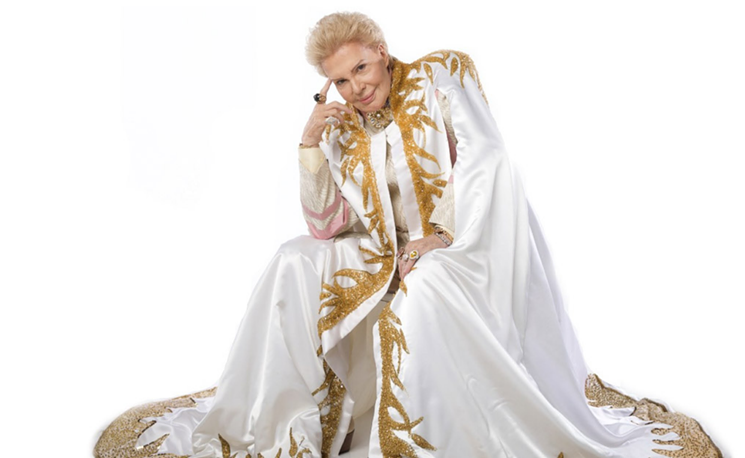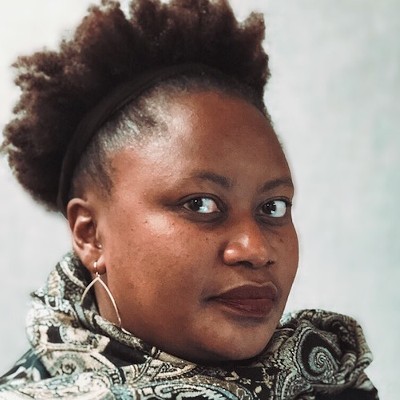Time
Time, which is filmed in a surprisingly rich monochrome, spans 21 years and follows Fox Rich, a New Orleans wife and mother whose life forever changes when she and her husband, Rob, rob a bank in 1999.Struggling to keep their urban clothing store afloat in Shreveport, Louisiana, the two devise a plan that will haunt their family for decades. Once apprehended, Fox takes a plea bargain and is sentenced to 12 years. Although she serves only three and a half years, Rob is hit with a 60-year sentence that carries no chance of parole or a reduced sentence.
Although much of the film centers on the unjust cruelties of the prison industrial complex, Time follows those reckoning with it from the outside. Rob appears as a smiling face in home videos, a voice on the phone, and, later, as a life-size cardboard cutout in the family home, but never behind bars. His place of incarceration, Angola Prison, is seen only from bird's-eye views. As framed by director Bradley, the prison — surrounded solely by rural Louisiana landscape — might as well be on another planet.
Unfurling in layers, Time alternates between two mediums: Fox's video dispatches to her husband, shot on MiniDV over 18 years, and Bradley's footage of the family in the present day. When viewers first meet Fox, she is pregnant with twins and Rob is incarcerated. In her home videos, she speaks only to Rob. Her sadness and longing are often palpable, but there are happy moments too: children's birthday parties, the first day of school, a perfect day's drive in the car. While prison keeps Rob away, Fox ensures he misses nothing.
"Time cross-cuts footage from the past and present, framing it with lyrical voiceover from Fox and her sons to provide a uniquely intimate perspective into the long-term costs of incarceration: the children who grow up without fathers, and the mothers who are forced to become caretakers, professionals, and legal experts all at once," Bradley says.
Bradley intended Time to be a short film, but when she finished shooting, Fox handed her the personal video diaries. The director had no idea the tapes existed until that interaction. After watching them, she knew that the story and the filmed materials together necessitated a feature-length project. It's clear that Fox's private meditations are invaluable to the narrative.
"It allows us to recognize that there is a mask there; there is an armor there," Bradley says. "We see her go from her most vulnerable place, as a struggling single mother trying the best she can, documenting herself in the meantime for the sake of her husband who's locked up, to confidently giving direction to a white dude on how to shoot a commercial for her job."
Time approaches American incarceration from a unique vantage point. In doing so, the film not only feels wholly original but also centers humanity and love in a system devised to quash the human spirit. Screening at 2:45 p.m. Saturday, March 7, and 10 p.m. Monday, March 9, at Silverspot Cinema, 300 SE Third St., #100, Miami; 305-536-5000; silverspot.net/downtown-miami.

The life and times of Walter Mercado are the focus of the new film Mucho Mucho Amor.
Photo courtesy of Cristina Costantini and Kareem Tabsch
Mucho Mucho Amor
Mucho Mucho Amor profiles Walter Mercado's journey from humble beginnings in Puerto Rico to international acclaim as a beloved TV astrologer. The documentary opens with the enthralling fanfare that is Mercado's hallmark: a fury of strings crescendo over a bellowing male chorus as Mercado spins dramatically. Reaching for his sequined, floor-length cape, he throws it with each turn like a model on the biggest catwalk in the world. Mercado mesmerizes, and it becomes impossible to look away.For decades, Mercado's enthusiastic horoscopes and bejeweled flamboyance were staples in millions of Hispanic homes. His peculiar brand of positivity and performance was broadcast across Europe and the Americas. He rose to cult-icon status, appearing on popular talk shows such as Sally Jessy Raphael's program and even on radio alongside the infamously vulgar Howard Stern. For a time, Mercado was also the face of a psychic network hotline: He was everywhere. Then, one day, with no explanation, he abruptly disappeared from the spotlight.
Miami native and O Cinema cofounder Kareem Tabsch and filmmaker Cristina Costantini gained full access to Mercado at his home in Puerto Rico for the filming of Mucho Mucho Amor. After several years in hiding, he was ready for his closeup. Even as an octogenarian, Mercado remained a consummate showman.
Some of the film's best moments emerge from Mercado's interviews. Asked if he's had plastic surgery, he says with a kittenish smile: "Little arrangement... a special Botox, like Nicole Kidman." He entertains with coy glances and outlandish outfits, but he doesn't shy away from discussing difficult times either.
Mercado delves into his humble childhood and explains how he came to be known as a sort of miracle worker in his community. He claims he always knew he was different, certainly not like his brother who rode horses and played sports. Thankfully for Mercado and his eventual fans, his mother was supportive of his individuality. "To be different is a gift," she told Mercado. "To be ordinary is common."
The beauty of Mucho Mucho Amor is that it allows its subject the space to spread his peculiar brand of positivity and performance. Costantini and Tabsch include amazing archival footage from Mercado's apex, interviews with Lin-Manuel Miranda and Eugenio Derbez, and the opening of HistoryMiami Museum's 2019 exhibit celebrating his 50-year career. Mercado and his team describe Miami as a sort of second home, and it's wonderful to see him receive a South Florida reception befitting royalty.
Mercado's gender-nonconforming image and individuality continue to inspire younger generations. He's an arresting presence onscreen, but he also extends kindness and consideration to others at a moment's notice. And as he shows his acute awareness of his following throughout Much Mucho Amor, viewers can also glimpse his fear of disappointing them even years after he stepped out of the public eye.
Mercado passed away in 2019 shortly after filming wrapped. Regardless of whether it was released while he was still alive or not, Mucho Mucho Amor is a fitting homage to a man who defied categorization. Closing the Miami Film Festival on Awards Night at 7 p.m. Saturday, March 14, at the Olympia Theater, 174 E. Flagler St., Miami; 305-374-2444; olympiatheater.org; Filmmakers Cristina Costantini and Kareem Tabsch will be in attendance.
Miami Dade College's Miami Film Festival. Friday, March 6, through Sunday, March 15, at various locations across Miami-Dade. For info about films, events, and ticket prices, visit miamifilmfestival.com.












